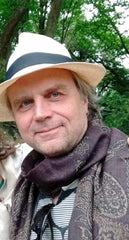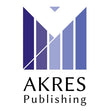In October 2024, Dirk Hegmanns' new novel was published under the title "Wars in the Middle of the World". A story based on real events about the work and struggles of a refugee helper in the Turkish-Syrian border region. Inspired by the events of the 2010s. We asked the author to make some statements about the history and motivation of the novel.

Your new novel “Wars in the Middle of the World” deals with the political tensions in Turkey and Syria. What is your personal connection to the topic?
I worked for five years as the country director of an aid organization in the region and got to know the refugee problem in all its facets. Above all, I was able to observe the political developments unfiltered on the ground. By that, I don't just mean the war in Syria, but also the events in Turkey, which were and are only perceived in fragments in Germany and other countries. During my time there, I was able to experience the reality of refugees, war trauma, but also massively restricted freedom of the press and freedom of expression almost first hand. These were very intense, sometimes extreme events for me.
What vision does the main character Richard carry with him in the novel?
Richard is a person who does his work with passion, but too often ignores the context in which it takes place. Caring for refugees fleeing the cruel war in Syria is his priority. He even puts his political convictions aside for this. Only gradually does he question Turkey's development into an autocracy, and he increasingly turns against the situation.
To what extent does the Iranian photographer encourage or even hinder Richard in his endeavors?
The photographer Faribaa nourishes the germ of protest within him, which may already be hidden but is now becoming more and more apparent. She has a kind of catalytic function that causes Richard to rethink and act.
Can your novel also be interpreted as critical of the regime or society?
Absolutely! It is precisely the anti-democratic tendencies in Turkey and the brutal war in Syria that prompted me to write this novel. In this sense, it is also a call to stand up against such tendencies and to take the initiative, in whatever country they occur.
What should the reader expect when it comes to the balancing act between love and the struggle for survival of the main protagonists?

The main protagonists find themselves in the middle of a crisis and war zone and thus in a situation that could be dangerous for both of them. For Richard, because he could be hit - intentionally or unintentionally - by bomb attacks or rockets from the Islamic State, and Faribaa, because she wants to make a name for herself as a war photographer. But both are planning for a future without threats, and they draw strength from that.
Do you also provide a model for a solution to the war conflict in the form of the two main characters Richard and Faribaa?
Of course, the protagonists cannot offer a solution to the wars currently taking place in the region. But both want to at least do their part to raise awareness and ensure that the issues that are important to them receive the attention they deserve - including from decision-makers. Whether and how they succeed in doing this, I do not want to reveal here.
What appeal does your book make to the reader?
There are a whole series of wars in the world at the moment and I think that, given the daily news, many people in Germany are already tired of war. Attention and interest in it are waning. But news and documentaries mostly report on the events in a factual manner, which then hardly appeals to emotions. The novel addresses the emotions, be they those of the refugee helper, the refugees themselves or the resistance fighter in Syria. It addresses the questions of what it means for the individual actors to live under autocratic conditions, to flee their homeland or to decide to join the resistance. Hardly anyone escapes the traumatic experiences that come with this. The novel is a plea not to take democracy for granted, but to actively work for it. I think democracy is the strongest and at the same time the most vulnerable form of government and rule today. The strongest because it guarantees participation and transparency. The most vulnerable because it must tolerate the intolerable, including its enemies, as long as they use democratic instruments, even if they are aimed at weakening democracy or even abolishing it. Our freedom and our values are not free; we must stand up for them and sometimes fight for them.
The interview was conducted by Christian Leeck.
Wuppertal, September 2024.
Machine translated from german.




